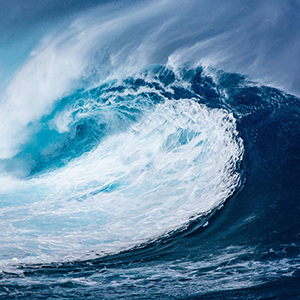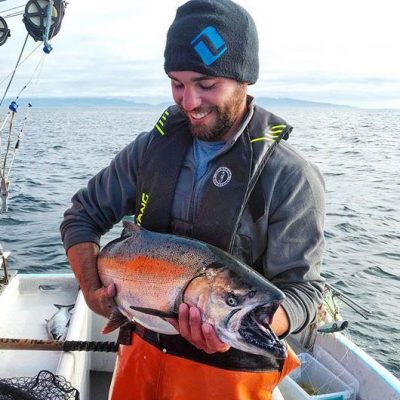When the ocean loses its breath
Oxygen is invisible, but it quietly decides where marine life can live, how it behaves, and how productive ecosystems can be.
When the ocean changes the rules for Wild Salmon
One of the threats salmon face has a deceptively gentle name: thiamine deficiency complex.
International Women in STEM Day at IOF: Science that Protects Oceans, Communities, and Futures
IOF is highlighting a few of the women across the Institute whose work shows what science looks like when it is built for impact.
Not all waves are created equal
It was found that when elevated water levels and the right wave direction line up, inundation risk jumps. This is particularly true during El Niño, when regional sea level sits higher.
Marine heatwaves quietly rewire ocean food webs
These bursts of extreme ocean heat are also reshaping the entire structure and function of marine food webs, with consequences that can last years after the water cools
From single use to reuse in beverage packaging
Reusable cups and bottles can cut carbon, waste, and costs if return and washing systems are in place.
Dr. William Cheung named Fellow of the Royal Society of Canada
Fellows of the RSC are distinguished Canadians from all branches of learning who have made remarkable contributions in the arts, the humanities, the sciences, as well as in public life.
Pacific salmon are highly sensitive to ocean acidification – regardless of how much they eat
Climate change is driven in part by excess carbon dioxide emissions, much of which is absorbed by the ocean, a process known as ocean acidification.
New mega RNA virus may hold the key to mass oyster die-offs
Scientists have discovered a previously unknown virus in farmed Pacific oysters during a mass die-off in B.C., Canada.









